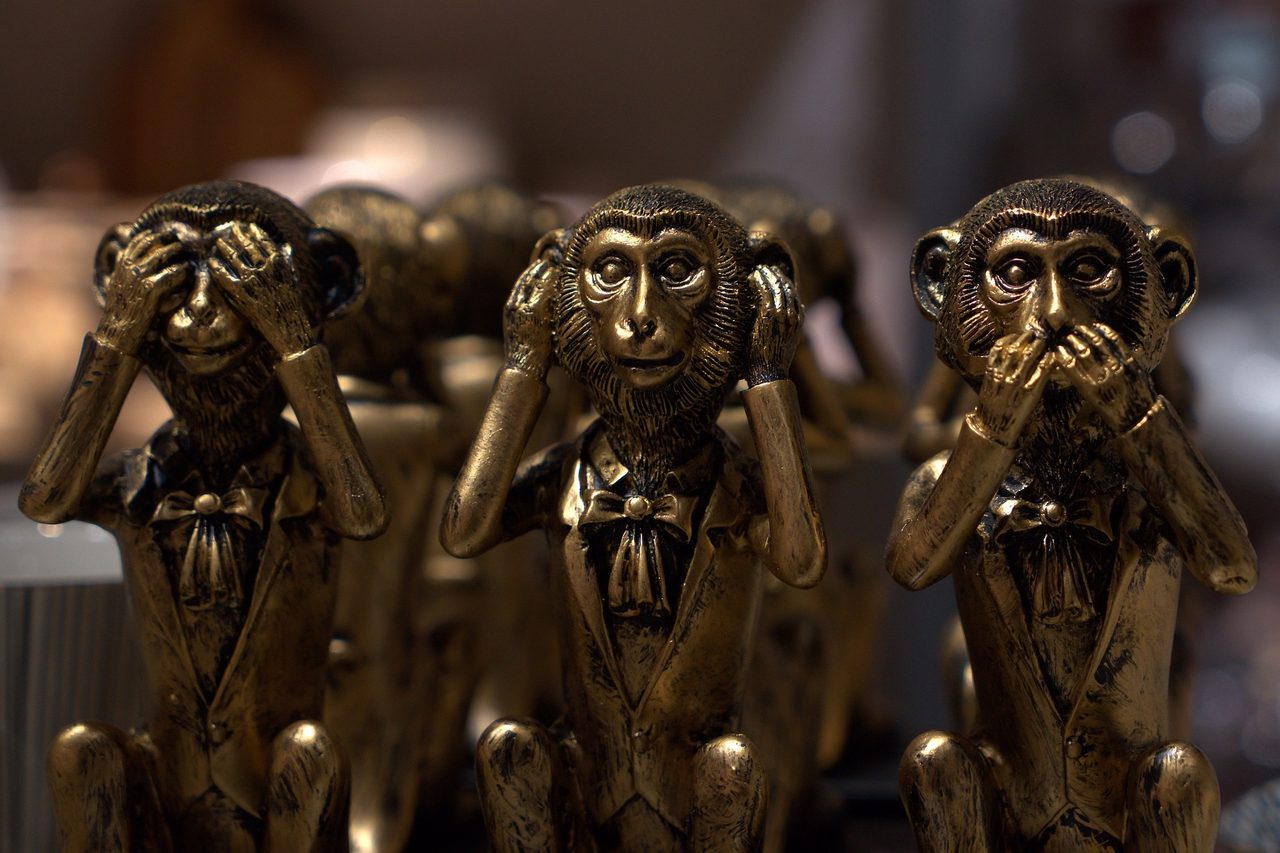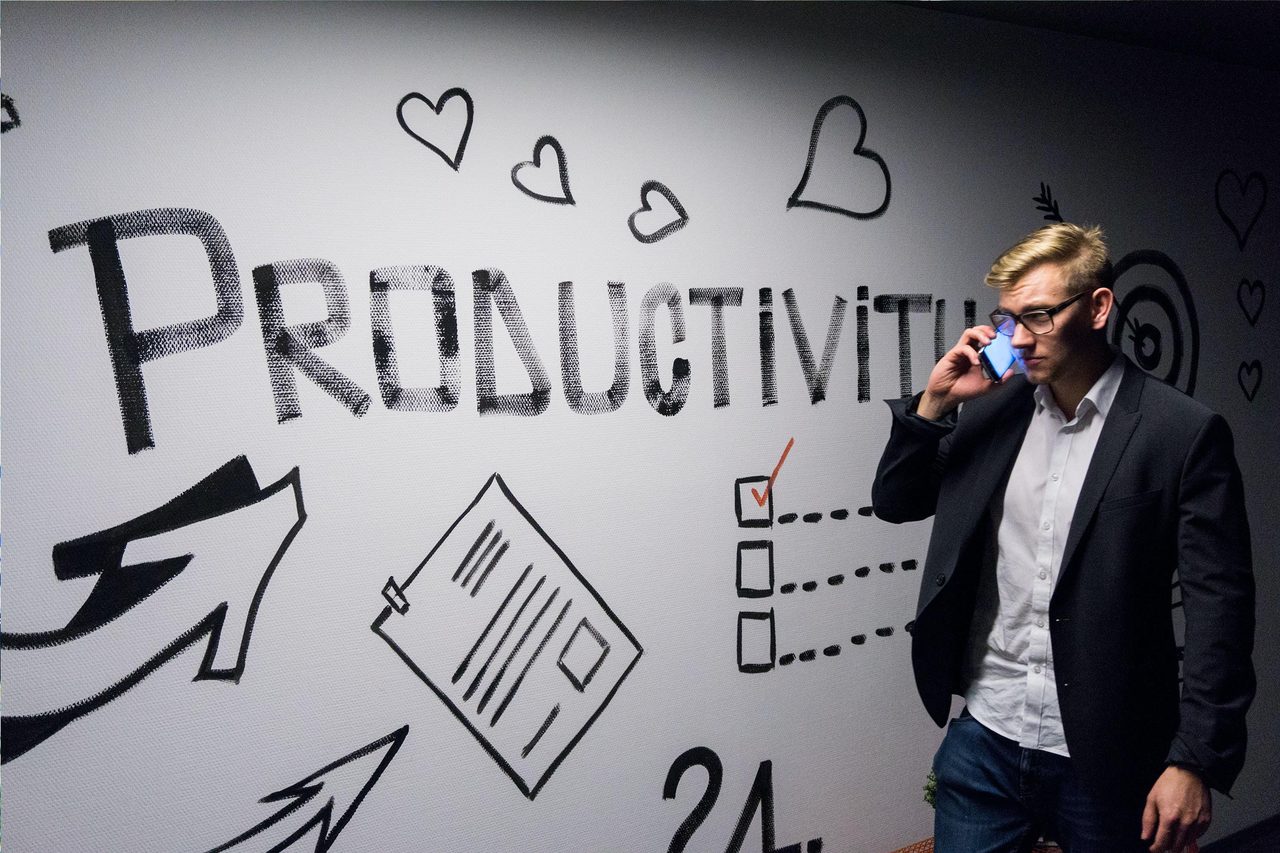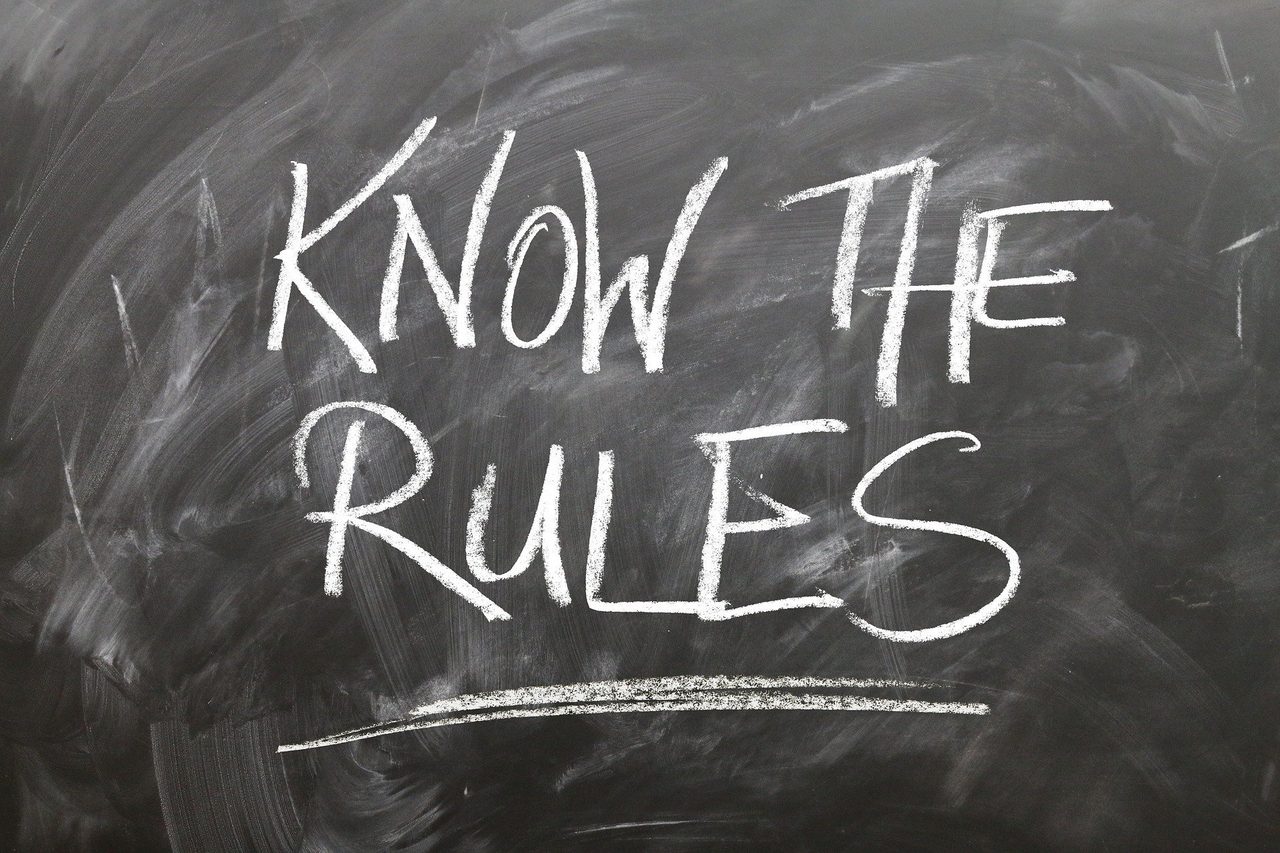

feature
Engineering Ethics in the Built Environment
A rationalization of 'we’ve done it this way all the time' doesn’t make something right or ethical.

Figure 1: Business decisions are made for a variety of reasons, including cost of construction, energy costs, operating costs, owner preferences, past experiences, and industry trends, just to mention a few.
Photo courtesy of Unsplash
Ethical conduct; how hard can it be? Just do the “right” thing. The cliché “take the high road” could apply to every entity in the building HVAC industry. But, what is the high road? What is the right thing to do?
This article attempts to share some insights into the subject of ethics in the HVAC construction industry. While not implying that there are any general or specific ethical issues that need to be corrected, this article is designed to bring to light the potential of unethical behavior and fraudulent activity that could occur.
In the building industry, there are a lot of professional engineers, architects, consultants, facility owners, contractors, suppliers, manufacturers, code officials, and other members of the building team. As a building goes from the conceptual phase all the way through design, plan review, bidding, construction, inspection, commissioning, etc., many decisions are made. These decisions are made for a variety of reasons, including cost of construction, energy costs, operating costs, owner preferences, past experiences, and industry trends, just to mention a few. Decisions are made based on whether the information provided is factual, fictitious, or skewed with bias.
The more people and business entities that are involved, the more opportunity for ethical issues to arise. One doesn’t have to research too much in the building industry to find opportunities and examples of ethical boundary infringements. In some cases, there may be a question of whether ethical issues do indeed cross over into fraudulent (illegal) activities. Continued ethical boundary infringement may become part of “it’s just business” or “real-world rationalization" and evolve into a firm's "corporate culture." A rationalization of “we’ve done it this way all the time” doesn’t make something right or ethical.
Although making a profit is a fundamental and essential goal of a business, there are times when making a profit at all costs can put individuals and companies at risk. Risk of embarrassing situations are one thing, but risk of crossing into illegal (fraudulent) actions can ruin lives and companies.
In sales, whether selling professional services, contracting services, or HVAC products, there is a need for marketing. Marketing, in and of itself, is part of any business. The more aggressive the marketing tends to be, the greater the risk of crossing boundaries of making claims that may or may not be fully true or deliverable. Purposely deceitful and deceptive marketing may seem acceptable by some who are not actually part of a particular profession but are hired to do the marketing, win contracts, and are compensated accordingly. The best marketing follows the Keep It Defendable (KID) principle.
Obviously, bribery and other favor exchanges can be direct violations of ethics and can quickly cross legal lines, but it may happen more often than is realized and not known. This can happen in many ways, including a direct or indirect kick-back by the procurement officer to the sales person of a product or by the sales person of a product back to the procurement officer either in direct cash payments behind the scene or favors, such as elaborate vacations or entertainment, that are pre-agreed upon or not discussed but clearly understood in their delivery.
When it comes to ethics, there are many definitions, guidelines, and opinions. Some may interchange the words ethics and morals. There may be one distinct clear definition of ethics by one source, but it can be hard to prove or disprove what is proper behavior when it comes to ethics, even when the definition seems clear.
Definitions
The definitions for ethics, fraud, and morals can be found in a variety of sources. For the purpose of this article, the definitions noted below are provided as a basis of discussion using the Merriam-Webster dictionary.
Ethics is defined as the discipline dealing with what is good and bad and with moral duty and obligation as well as a set of moral principles — a theory or system of moral values.
Morals are defined in numerous ways, including of or relating to principles of right and wrong in behavior; expressing or teaching a conception of right behavior a moral poem; conforming to a standard of right behavior took a moral position on the issue though it cost him the nomination; sanctioned by or operative on one's conscience or ethical judgment a moral obligation; etc.
Fraud is defined as deceit and/or trickery. Specifically, it’s termed as an intentional perversion of truth in order to induce another to part with something of value or to surrender a legal right was accused of credit card fraud; an act of deceiving or misrepresenting; a person who is not what he or she pretends to be; etc.
Motivation and Guidelines
What motivates people to do unethical things? There are several motivational theories for human behavior. Motivation in and of itself is considered to be a good positive aspect of human behavior. However, if the motivation is for improper gain, then the motivation can cause behavior, such as poor ethical behavior or fraudulent conduct, which can be a bad thing for those involved.
Many times, the motivation and decision-making within an organization is rationalized as it is “just business,” or “we’ve always done it that way.” There will likely always be a segment of any industry that will push the limits and even test the boundaries of ethical conduct. When actions are considered as “just business” with no oversight, boundaries can be crossed from ethical to fraudulent actions. A “group think” mentality and business culture can, and does at times, set in.
Project Team Ethics
During the beginning of the design and construction phases of a building project, it may be good for an owner to assemble the project team to have a discussion of ethical standards from multiple perspectives, including the ethical standards of the facility owner, who, ultimately, is paying everyone else on the project team directly or indirectly. Just about every segment of the building industry has a society or association that has codes of ethics and conduct for its members. Not every company on the project team may be a member of an industry organization, so they may or may not be aware of these guidelines; however, that does not give them an excuse for unethical behavior.
Every state has a statute defining the ethical code of conduct for professional engineers (P.Es.) that must be adhered to. The title of P.E. is given upon completion of a state examination process that is an indication of competency. There will be many who use the word engineer in their titles, on marketing literature, and on business cards; however, they may not be P.Es. Even those who graduate from accredited engineering universities may state they are engineers yet they are not P.Es. as defined by state statues. The use of the word engineer in a title without being a P.E. can be an ethical issue when the client does not understand the difference, and it is not explained. Many times, very good graduate engineers who are not P.Es. have jobs as designers.
The National Society of Professional Engineers (NSPE) has a code of ethics for engineers that their members are made aware of as P.Es. These can be found at www.nspe.org. The preamble of the NSPE code of ethics for engineers states: “Engineering is an important and learned profession. As members of this profession, engineers are expected to exhibit the highest standards of honesty and integrity. Engineering has a direct and vital impact on the quality of life for all people. Accordingly, the services provided by engineers require honesty, impartiality, fairness, and equity and must be dedicated to the protection of the public health, safety, and welfare. Engineers must perform under a standard of professional behavior that requires adherence to the highest principles of ethical conduct.”
The expectation of the NSPE is that members abide by the highest principles of ethical conduct. The balance of the code of ethics document goes on to elaborate on this expectation. The NSPE website has a history of the code of ethics for engineers dating back to 1935, so it's clear the discussion of ethical conduct has been important in professional engineering for many years.

Figure 2: Although making a profit is a fundamental and essential goal of a business, there are times when making a profit at all costs can put individuals and companies at risk.
Photo courtesy of Pixabay
According to the American Institute of Architects (AIA) website, organization members must comply with a set of ethical standards. The AIA website states: “The preamble to the AIA's code of ethics describes the principles upon which the code of ethics is based and includes a brief summary of the document. It provides that members of the AIA are dedicated to the highest standards of professionalism, integrity, and competence. This code states guidelines for the conduct of members in fulfilling those obligations. The code is arranged in three tiers of statements: canons, ethical standards, and rules of conduct. Canons are broad principles of conduct. Ethical standards (ES) are more specific goals toward which members should aspire in professional performance and behavior. Rules of conduct are mandatory; a violation of a rule is grounds for disciplinary action by the institute. Rules of conduct, in some instances, implement more than one canon or ethical standard.”
The American Marketing Association (AMA) also has a statement of ethics. The preamble to the AMAs statement of ethics begins with the following statement: “The American Marketing Association commits itself to promoting the highest standard of professional ethical norms and values for its members (practitioners, academics, and students). Norms are established standards of conduct that are expected and maintained by society and/or professional organizations. Values represent the collective conception of what communities find desirable, important, and morally proper.”
The full document can be found on the AMA website. Although it’s not mandatory that manufacturers of HVAC products be members of the AMA, it is good to know that there is at least one marketing association that has a statement of ethics that could be used as a basis of specifying HVAC product manufacturers’ credentials just like a product performance standard or a business process standard.
Another source of information on business ethics is Business Ethics, a magazine of corporate responsibility. Although this is just one of many sources, this one is noted here because of its inclusion of the word “responsibility.” With authority, there is responsibility. There have been legal cases in America in recent years where corporate leaders at the highest level have been arrested and jailed due to corporate responsibility failures relating to ethics and fraud. These cases have cost their customers millions of dollars. Although Business Ethics’ online magazine is focused on the investment community, the principles and topics of discussion can apply to any business, including those in the HVAC construction industry.
In addition to some of the organizations noted above, there are others, like the Associated Air Balance Council Commissioning Group (ACG); Design-Build Institute of America (DBIA); American Society of Mechanical Engineers (ASME); American Society of Civil Engineers (ASCE); Institution of Electrical Engineers (IEE); America Supply Association (ASA); Association for Manufacturing Excellence (AME); International Facility Management Association (IFMA); Manufacturers' Agents National Association (MANA); Construction Management Association of America (CMAA; and many others. Overall, it appears that no matter what segment of the building industry a company or individual operates in, there are guidelines for acceptable ethical conduct. It's not just the HVAC engineering profession that has ethics guidelines. Many states and organizations, such as the National Institutes of Health (NIH), United States Department of Agriculture (USDA), and the United States Department of Veterans Affairs (VA) have ethical standards in writing also. In general, there is no excuse for any business in the HVAC building industry to not have an ethical code of conduct to follow and have as part of a corporate policy.
There are also multiple manufacturers’ trade associations for a variety of HVAC product categories that have memberships of only manufacturers of those specific products. These trade associations are marketed as self-monitoring to hold all members accountable to proper product testing procedures. Whether it be fans, boilers, gas-fired products, pumps, etc., the members know each other and understand the business pressures each has. These organizations can be active in lobbying for various codes and standard criteria that can make their businesses more profitable if not held accountable to changes needed for the betterment of society. However, this creates an opportunity for ethical issues to arise within a manufacturers’ trade association with no outside oversight?
Points to Ponder
Building teams should consider engaging in a thought-provoking discussion on ethics at the beginning of a project. Some points to ponder and consider might be as noted herein.
- In what ways might an owner be tempted to cross ethical or fraudulent lines in the building design and construction?
- In what ways might an architect be tempted to cross ethical lines in the building design?
- In what ways might a professional engineer be tempted to cross ethical lines in the design or product selection and specifications that might give a favored manufacturers’ representative an advantage on bid day?
- What are ways in which intellectual property may be unethically taken from another professional engineer or source?
- In what ways might a general contractor be tempted to cross ethical lines in the bidding and construction process and working with code authorities?
- In what ways might a subcontractor be tempted to cross ethical lines in the building process and product purchases and installations?
- In what ways might a professional engineer be challenged ethically when working for a design-build contractor?
- In what ways might a sales representative/supplier be tempted to cross ethical lines when promoting products to P.Es. and facility owners?
- In what way might an HVAC product manufacturer misrepresent the product in either verbal or written marketing materials that are provided to professional engineers, architects, and facility owners?
- In what ways might a code official be tempted to cross ethical lines when working with contractors in an effort to get the project completed on time?
- Are the engineers, contractors, or facility owners under the influence of a manufacturer or product representative because they accepted inappropriate “gifts,” such as meals, tickets to sporting events, trips, or other things that may cause unethical judgement and not allow fair competition by others?
- Is the engineer working and/or sealing documents outside of their area of expertise and not fully providing engineering oversight of the engineering design decisions as required by state statute?
Conclusion
A good business foundational principle might be, “If we can’t do it ethically, we won’t do it” for every business in the building industry. It may sometime seem that society has reached a point where it is difficult to have a business operate on the principles of integrity, honesty, trustworthiness, and good ethics.
Is it necessary for a business to be unethical to make a profit in today’s competitive global economy? If so, maybe society and the world needs to reevaluate what is really important to operate a successful company. If each individual would be mindful of their own actions and also be the ethical eyes within the company they work for, then the bar of expectation would continue to rise worldwide. It’s not easy to take on the role of the ethics whistleblower in a company when profits are good. Profits lead to increased compensation, potential bonuses, and job security.
The cliché of Keep It Simple (KIS) may sometimes be a challenge in the study of ethics. Ethics are not always simple. The KID principle should never be compromised in company policy, culture, or expectations of those within the company.

Steven G. Liescheidt, P.E., CCS, CCPR
Steven G. Liescheidt is owner of SPPECSS Consulting LLC. He can be reached at stevengl1@sbcglobal.net.
Lead Photo courtesy of Pixabay